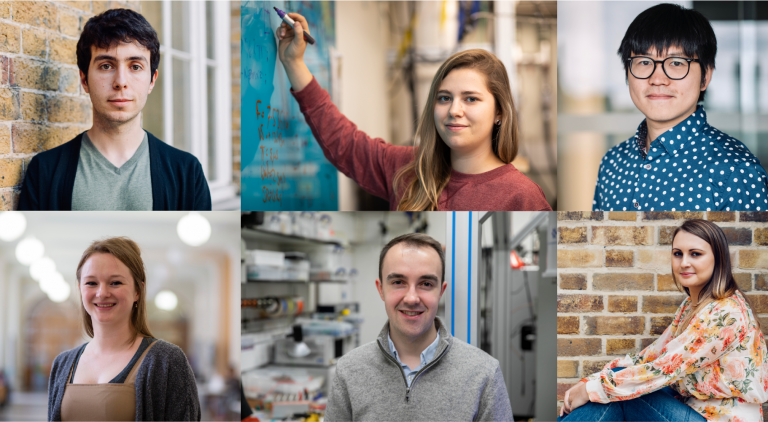Training: Sector-led
1 October 2020
Since 2014, UCL has been the home of one of three EPSRC Centres for Doctoral Training in Quantum Technologies.

The highly-skilled researchers who will be the future leaders in quantum technologies must be equipped to function in a complex research and engineering landscape where quantum physics meets cryptography, information theory, devices, materials, software and hardware engineering. UCL’s Doctoral Programme in Delivering Quantum Technologies brings together a team of almost forty academic experts with key players from commerce and government, and a network of international partner institutes to train those research leaders.
This year signalled the second phase of the centre, initially funded in 2014 for five cohorts of students. UCL was successful in securing EPSRC funding for another five-cohort phase ending in 2028.
In September 2019, we welcomed our sixth cohort of students. As in previous years, the first year of their course will be one-year MRes degree with taught courses and research training followed by a three-year PhD. This year, we made significant revisions to our MRes course placing a greater emphasis on partner-designed and partner-delivered training.
This included a week-long residential course in Cambridge and Ipswich, where students learned about advances in quantum communications at Toshiba Research Europe, Hitachi Cambridge Labs and BT Labs. In addition, The National Physical Laboratory (NPL) delivered a week of training that was an introduction and overview of the works conducted under the newly established Quantum Metrology Institute at NPL. The organiser of the week was Helen Margolis, who is Head of Science for the Time and Frequency Department at NPL and who was also recently awarded an MBE for her contributions to science and metrology.
Professor Paul Warburton, the Centre’s new Director, believes focussing the CDT around partner-led training helps position our graduates and students at the forefront of advances in quantum technologies, and will develop the skills in such critical demand in the quantum sector. The success of this strategy is reflected in our excellent post-graduation employment record and the quality of the research published by our students.
CDT Facts:
- 15 EPSRC and industry co-funded PhD studentships since 2014
- 60+ Academic papers from students including 7 in the Nature group and 4 in Physical Review Letters
- 20+ partners from across the quantum sector including BT, Cambridge Quantum Circuits, Google, Hitachi, NPL, Riverlane, and Toshiba
- 60/40% theoretical/experimental spilt in PhD projects
- 40% female intake for 2019 cohort
- 16 graduates since 2014
- 800+ applicants
- 10-14 students per cohort
- 49 current PhD candidates
Apply or find out how to become a partner of our CDT.
This article was featured in UCLQ’s 2019/20 annual report.
 Close
Close

